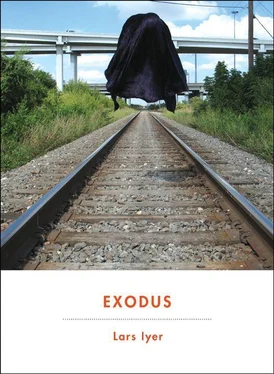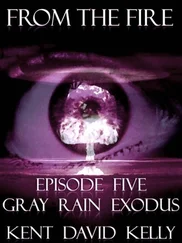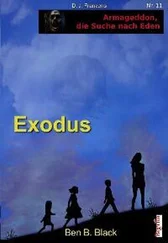W. remembers how it all began. I came into his care, like a Robin to his Batman: a ward, a protégé. How was he to know what would happen?
He taught me table manners as best he could. He tried to teach me politeness — to shake hands, to make chit-chat. He stopped me from continually touching my skin through my shirt, and tried to quieten my bellowing.
Friendship involves a lot of nagging, W. says. I had to be nagged! I was like a prisoner, released blinking into the light. What had I known of life, before I met him? How had I survived?
I was a scholarly Kasper Hauser , W. says, who knew nothing of reading, or note-taking. I could read, that much is true. But only just, only approximately, and with a great deal of pathos, with wild underlinings and illegitimate identifications. — ‘You thought every book you read was about you, didn’t you?’ That’s me! I would say, pointing to a passage in Hegel. It’s about me! I would say, pointing to the Science of Logic .
And all along, W. was waiting to see if I was the harbourer of some secret wisdom, if my years of unemployment had taught me some great and unguessable insight. He took me out into the scholarly world. People were impressed at first, then frightened. Why is he covered in his own spittle? they asked. Why is he covering us with his spittle?
I made audiences flinch, W. says. Professors would turn white, or leave to vomit. — ‘They couldn’t understand what had just happened’. But W. understood. His heart leaped up.
Hadn’t he always sought an outsider scholar ? Hadn’t he always dreamt of intellectual movements that took place outside the university ? Of professors of desperation; of the university of alcoholism?
I came from the outside, and I brought the outside with me, W. says. I came from the everyday and had to stamp the everyday from my boots. — ‘How long had you been unemployed?’ Years, I tell him. Years!: W. can’t imagine it. — ‘And for how long before that had you worked in your warehouse?’ Years again. — ‘Years!’, W. exclaims. Of course, there was also my time with the monks. Ah yes, my ever-surprising monk years , W. says.
But there you were, and who had seen anything like it? — ‘You were like a one man horde, a Tartar’. There was spittle on my lips and drool in my beard. Had I ever heard of a footnote? Did I know what an appendix was, or what op. cit . might mean? Scholarly standards were an irrelevance to me; academic conventions an imposition I could completely ignore. It was quite impressive.
‘Your book! Your first book!’ W.’s still amazed. It was entirely without scholarship, without ideas, W. says. Without the usual concern to explain or to clarify. A book almost entirely lacking in merit. And yet! W. saw something there, although no one else did. He saw it, and not in spite of its many typos and printing errors … It was there because of them, W. says. It was inextricable from them: a kind of massive, looming incompetence. A cloud of stupidity covering the sun, and belonging to it like its shadow.
It was demonic, W. says. It was as forceful as a demiurge. That’s when he became aware of it as a kind of un God, as a division of darkness within light, of death within life. How could anything so bad have been written? Who could have defiled the temple of scholarship and revealed it to have been always defiled? He saw it, W. says, even if no one else did. And it was his role to look after me, until the very end.
Spital Tongues, Newcastle. There it is, W. says, as we walk past the allotments. There it is, the terrace where my flat is buried. The dampest row of flats there ever was, W. says. The dampest Tyneside flats, built atop a culvetted river, atop a coal tunnel now used for sewage, atop old mine workings, now full of water. The dampest, most rat-infested flats, which should have been demolished a hundred years ago, but have been allowed to survive in their degradation. The last of the slums after all the slums have been cleared …
And there’s my flat, the centre of the catastrophe, W. says. My flat, a swamp in the shape of a flat, a flat-plague, interred in its pit. My flat that the sun doesn’t reach, deep underground like a mausoleum to the world’s greatest idiot. My flat, like a barrow for the greatest of imbeciles …
‘What possessed you to buy an underground flat?’ W. says. To be close to the earth, he says, was that it? To be close to the toads and the worms, to the creatures of the earth?
Slug trails along the floorboards … Curled up woodlice in room corners … — ‘The flat’s being taken back by nature’, W. says. He’s right. The walls are green. Mushrooms grow from the ceiling. And then there’s the damp, of course. The ever-present damp. Is it alive? Is it dead? It’s beyond life, and beyond death, W. says.
They should send scientists out to study it, my damp, W. says. They should try to communicate with it, like the scientists in Solaris . It’s more intelligent than us, W. says, he’s sure of it. My damp has something momentous to say, something profound. In fact, isn’t it speaking now, to those who have ears to hear? Isn’t it rumbling in the darkness? I should know, W. says. I live with it. — ‘You understand the damp’, W. says. Or rather, the damp understands itself in me.
And there are the rats, too, he shouldn’t forget them. My rats, that’s how he thinks of them. My rats, my familiars, living under my floorboards. He’d hear them chattering if he pressed his ear to the floor, W. knows that. He’d hear them speaking their obscene language, for all that I tell him the rats are all dead.
What next? W. wonders. What will be the next plague? There are the slugs, of course, but they’re scarcely a plague. There are the ants — and the mushrooms. But he believes something more dreadful is gathering itself in my flat, W. says. Something Lovecraftian. Something cosmic …
He’s never seen plants growing directly out of concrete, except in my yard, W. says. It’s quite extraordinary. It’s Japanese knotweed, I tell him. Oh yes, he heard something about it on the radio, W. says. Isn’t it taking over Britain? Isn’t it choking all our native species one by one? Well, now he knows where it’s coming from, W. says. — ‘Your yard is the source of all evil’.
My living room. W. takes his place on the Chair of Judgement: ‘Bring me gin!’ It’s going to be a long night. He has a lot to get through, W. says, leaning his chair back against the wall.
My failings, my failures: the usual topic. The failure of my life, of my thought. The failure of my books. Familiar topics. My past failures, my present ones: yes we know about those, W. says. But my future failings … that’s what W. wants to talk about tonight.
‘Where will you have gone wrong?’, he says. ‘What will you have done? What crimes have you yet to commit? How will you have managed to have failed anew?’
It’s quite a tense, isn’t it, the future perfect? W. says. Who will I have disappointed? Him, of course, W. says. Whose hopes will I have defiled? His, of course, W. says. His hopes.
Ah, what will I have done to him, W., in the future? What terrors await him? — ‘Will you have written another book? Will you have come up with another escape plan?’ Ah, but he knows what will have happened. I know. We’ll have been sacked, and living on the dole.
He only teaches sports science students, now they’ve closed the humanities at his college, W. says. They arrive at his seminars ruddy-faced and healthy looking, with towels around their necks. He does his best to improve them, W. says, but it’s no good.
Читать дальше












